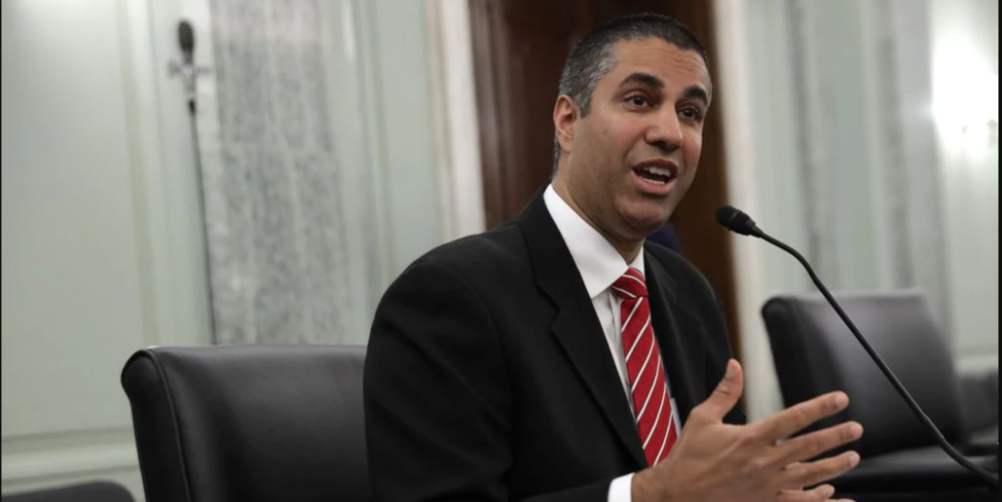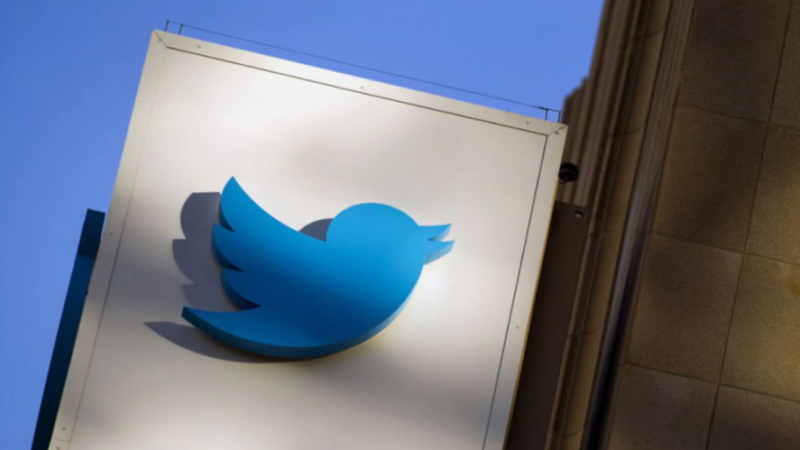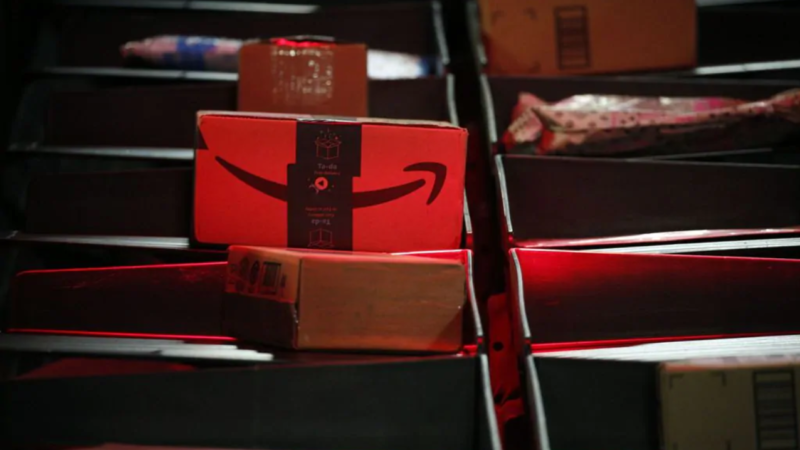FCC changes its stance on Section 230 policy after months of Trump tweets

The FCC is an independent agency, and historically, it has sought to emphasize its separation from the White House. But some critics still saw the FCC’s timing as politically peculiar.
Only a year ago, top FCC aides had told the Trump administration privately that they did not want to pursue regulation around online speech, according to four people with direct knowledge of the talks, who spoke on the condition of anonymity to describe confidential proceedings. The comments came as part of a series of conversations convened by the White House designed to explore potential regulation targeting Silicon Valley.
Pai himself had previously expressed opposition to new FCC regulation targeting social media sites. On Thursday, however, he set the agency on a path toward issuing new rules around Section 230, citing concerns shared by “all three branches of government” about the tech giants’ behaviour.
“Social media companies have a First Amendment right to free speech,” said Pai, who tweeted his statement at 2:30 p.m. “But they do not have a First Amendment right to a special immunity denied to other media outlets, such as newspapers and broadcasters.”
The FCC declined to comment. An agency official, speaking only on the condition of anonymity, stressed there had been no contact between the White House and the commission before Pai’s announcement. The official said that Pai’s position had remained consistent over time since the action he is eyeing on Section 230 is not the same as direct regulation of online speech.
Judd Deere, a spokesman for the White House, said in a statement that the administration “has engaged on rule-making through appropriate channels that the President’s Executive Order calls for.”
The FCC’s manoeuvre quickly sent shock waves through Washington. Democrats blasted the agency, and the party’s senior-most official at the FCC raised the prospect of political interference.
“The timing of this effort is absurd,” said Commissioner Jessica Rosenworcel. “The only logical conclusion is that the agency is acting at the behest of the president to intimidate platforms in the late days of the campaign. That’s not right. The FCC has no business being the president’s speech police.”
Some conservatives also pilloried the FCC for setting its policymaking process in motion. “Twitter and Facebook are dead wrong on this, though the First Amendment protects their right to be wrong,” said Jesse Blumenthal, who leads technology and innovation policy at Stand Together, a group backed by Charles Koch. “The answer to bad speech is more speech, not ineffective attempts to suppress information.”
Democrats and Republicans generally agree there is a need to rethink Section 230, which some critics say has come to shield the web’s most popular, profitable sites and services from being held accountable for wrongdoing. But Democrats have sought to reform the law in an attempt to thwart harmful content, including political disinformation, from proliferating across the web — while Republicans instead are motivated by allegations of political bias.
GOP lawmakers, led by Trump, for years, have argued that Facebook, Google and Twitter systematically suppress conservative users and websites — presenting only scattershot anecdotal evidence of their claims amid a flurry of denials from major tech companies. But they escalated their attacks this week after Facebook limited the reach of the New York Post’s reports about the Biden family, the evidence for which purportedly had been gleaned from a laptop abandoned at a Delaware repair shop. Twitter, meanwhile, at one point blocked users from sharing links to those stories. The White House and the Trump campaign blasted the tech giants for their decisions, and the president once again called for repealing Section 230.
“When the government granted these protections,” Trump tweeted Thursday, “they created a monster!”
The FCC, meanwhile, initiated a lengthy agency process to explore potential changes to the immunity granted under the law. The agency started examining the need for new regulations after Trump signed a controversial executive order this summer that aimed to enhance the government’s power to police how political speech is handled on the web. The FCC plans to release the legal rationale for its reasoning next week, agency leaders have said.
Pai’s announcement broke from his past public comments on the issue, according to experts. Asked at an August 2018 event about the FCC’s ability to police social media, for example, the chairman stressed that the agency “does not regulate them” and does not “have the authority under the laws that have been passed by Congress and the Constitution, of course, under the First Amendment.”
“So from that perspective, they are not going to be regulated in terms of free speech,” Pai continued, stressing that these tech companies should instead commit to transparency. He said consumers and competition otherwise would correct any ills: “If they want to focus on cats to the exclusion of dogs, ultimately, it’s a market that’s going to capitalize. There are a lot of dog owners out there who say it’s a step too far. . . and they’ll move to some other platform.”
“The government doesn’t have a role in solving every single ill that we identify on these platforms,” Pai said.
An FCC official, speaking on the condition of anonymity, said Pai embarked on the new policymaking process in response to recent events, including a statement this week from conservative Supreme Court Justice Clarence Thomas, who appeared to invite efforts to challenge Section 230 and the immunity it confers on tech giants.
Pai’s critics, however, saw in the agency’s efforts the influence of months of Trump’s tweets, public statements and policy pronouncements.
One person recalled a summer 2019 meeting in which White House aides and top officials from the FCC and other agencies discussed a precursor to the social media order Trump signed this year. The person, who requested anonymity to discuss private deliberations, said some participants at the time expressed concern that independent federal agencies such as the FCC, composed of Democratic and Republican members, might not have the votes to adopt any new regulations targeting political speech. In response, the White House appeared to issue a threat, signalling they could replace agency commissioners who fail to act, the person recalled.
Months later, Trump nominated Nathan Simington, an aide at the Commerce Department, to serve as a new Republican member of the FCC. Simington has played a critical role in crafting the Commerce Department’s formal request to the FCC, asking it formally wade into the debate over Section 230, according to two people familiar with the matter who requested anonymity to discuss government deliberations. Trump last week called on Senate Republicans to confirm Simington promptly.
Outside the FCC, other Republicans this week descended on the industry: Many GOP lawmakers have slammed the companies and pledged to press Facebook CEO Mark Zuckerberg, Google CEO Sundar Pichai and Twitter CEO Jack Dorsey about the allegations of political censorship at an already scheduled hearing days before the 2020 election. Sen. Lindsey O. Graham (R-S.C.), the chair of the Senate Judiciary Committee, plans to hold a vote Tuesday to authorize a subpoena that could force Twitter CEO Jack Dorsey to appear at a second congressional grilling in October.
Republican state attorneys general said they are also setting their sights on the tech companies, three weeks after Trump gathered the GOP leaders at the White House to encourage them to probe political bias.
“Many of us are ready to take action,” Jeff Landry, the Republican attorney general from Louisiana, said on Friday, stressing in the meantime he thought the U.S. government should “fine them, file an injunction, [and] shut them down” for their handling of the New York Post story.
Any FCC action on Section 230 could take months, meaning the future of the agency’s efforts rests on the outcome of the 2020 presidential election. Some aides to Pai even have confided they are disinclined to proffer any new rules at all, according to two of the people, who said they had received mixed signals about the FCC’s intentions.






